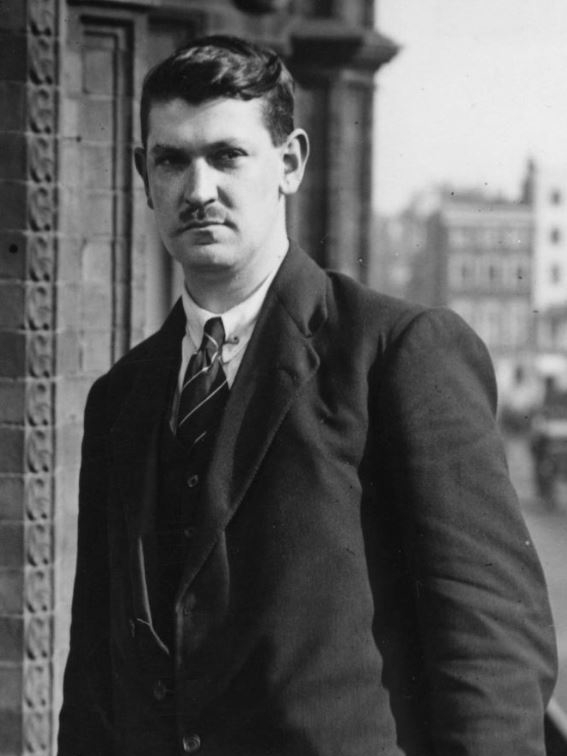Sinn Féin
Collins rose swiftly through the ranks of Sinn Féin, and was elected as one of the MPs for Cork in the 1918 general election. In the abstentionist Dáil formed by Sinn Féin after those elections, Collins filled first the function of Minister for Home Affairs and then Minister for Finance. At the same time he was in charge of the IRA intelligence network and leader of ‘the Squad’, which targeted and assassinated members of the British intelligence services. In all of these tasks ‘the Big Fellow’ displayed his talent for organization and for inspiring loyalty in those who served him. It is a sign of Collins’ importance that during the War of Independence the British offered a £10,000 reward for his capture.
Anglo-Irish Treaty
He was a reluctant member of the Sinn Féin negotiating team, seeing himself as a soldier rather than a politician. To the surprise of many on both sides, he then proved to be one of the most pragmatic of those involved. Collins signed the Anglo-Irish Treaty with misgivings (his comment about having signed his own death warrant is often quoted) but defended it robustly after Éamon de Valera and many Sinn Féin and IRA members rejected it. For Collins, the Treaty represented a stepping stone to true independence. He became chairman of the Provisional Government (the ‘official’ government of the 26 counties until the Anglo-Irish Treaty was properly ratified and put into effect); and during the Irish Civil War he was Chief-of-Staff of the new Free State army, leading the fight against his former comrades.
Ambushed
Michael Collins was fatally shot in an ambush near Béal na mBláth in Co. Cork on 22 August 1922. Incredibly, he was only 31. His early death, leaving him untainted by the political compromises that so many of his colleagues — and rivals — later had to make, as well as the accuracy of his prediction that the Treaty would led to fuller independence, has led to a good deal of idolization and speculation about what Ireland might have been like had he survived.

Seán Collins beside the coffin of his brother, 27 August 1922. Following his death, the body of Michael Collins was transported to Dublin. He lay in state at Dublin’s City Hall for three days. Thousands of people filed past the coffin.
(This is a slightly abridged version of the biography of Collins in Irish History Compressed. It was originally posted here. Photo credits: public domain from Wikimedia Commons.) Reposted: Michael Collins: a short biography by Bruce Gaston


3 comments for “Reposted: Michael Collins: a short biography”